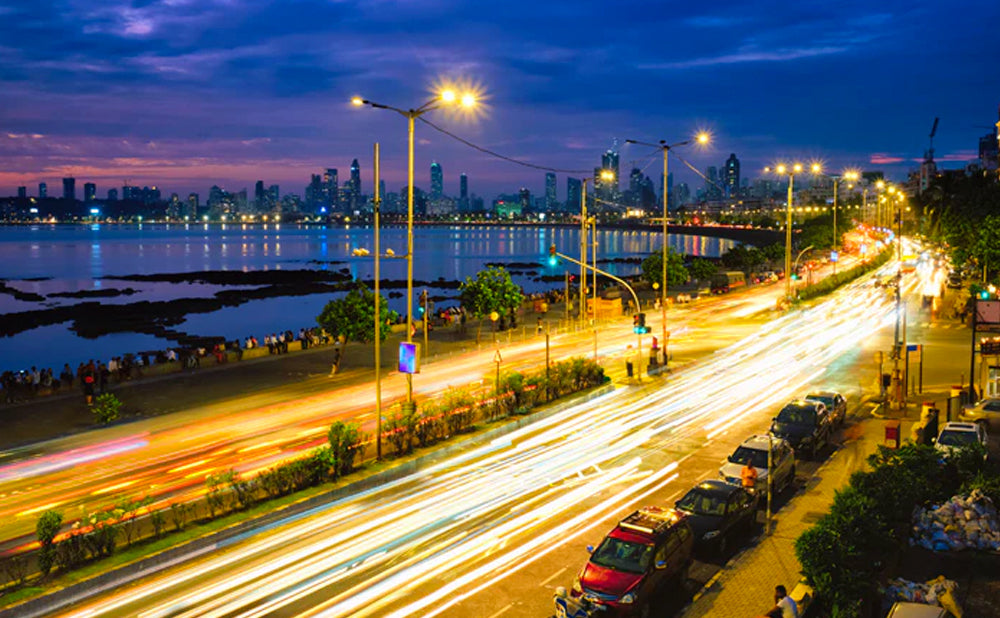How to drive in India?

Basic rules of the roads and driving requirements.
GENERAL TIPS AND ROAD INFORMATION
Driving in India is dangerous. Traffic drives on the left and passes on the right, however, observing driving discipline is non-existent. Apart from big cities, the roads in India are poorly maintained. Congestion on roads is a normal phenomenon and traffic jams are frequent. If involved in an automobile accident, wait until the police arrive to take a report. However, if a crowd gathers and appears hostile, go to the nearest police station to file an accident report. Frequent use of car horns is very common in India.
ROADWAYS AND MOTORWAYS
City roads and village roads are narrow, often potholed and badly marked. The national highways constitute approximately 2% of the roads however; they serve approximately 40% of road traffic.
FINES
If stopped for a violation, you will pay a fine in exchange for a receipt or surrender an ID (driver's license etc) for an official receipt of payment and go to court. Drivers under the influence of alcohol or drugs, with an alcohol level exceeding 30 mg per 100 ml of blood, will be punished. Imprisonment for a term of up to 6 months or a fine up to INR 2, 000, or both may be imposed for the first offence. Subsequent offences committed within 3 years of the first offence, may result in imprisonment for up to 2 years or a fine of INR 3,000, or both.

SPEED LIMITS
Speed limits vary by state and type of vehicle. Motorcycles are limited to 50km/h, trucks and buses are restricted to 65km/h, and cars range from 80km/h in the state of Maharashtra to none at all in Uttar Pradesh. On arterial roads, the speed limit is 50-60 km/h. Speed limit enforcement tends to be relaxed expressways.
DRIVING REQUIREMENTS
You may drive in India if you have a local license or an International Driving License (IDL). Renting a car without a driver is not common.
Tourists with an international driver's license may easily apply for a driver local license. for car or motorcycle. If your IDL expires, you may obtain a local driving license by submitting your expired license, along with a letter of introduction from your Embassy.
SEAT BELTS
Seat belts are required in both rear and front seats.

MOTORCYCLES
Motorcycle drivers and passengers are required to wear a regulation helmet. A full face helmet is recommended.
USEFUL TELEPHONE NUMBERS
The following emergency numbers work in New Delhi, Mumbai, Chennai and Calcutta:
Police 100
Fire Brigade 101
Ambulance 102
Sources: Wikitravel / Delhi Traffic Police / India Travel Agents / Answers.com / National Highway Authority of India
